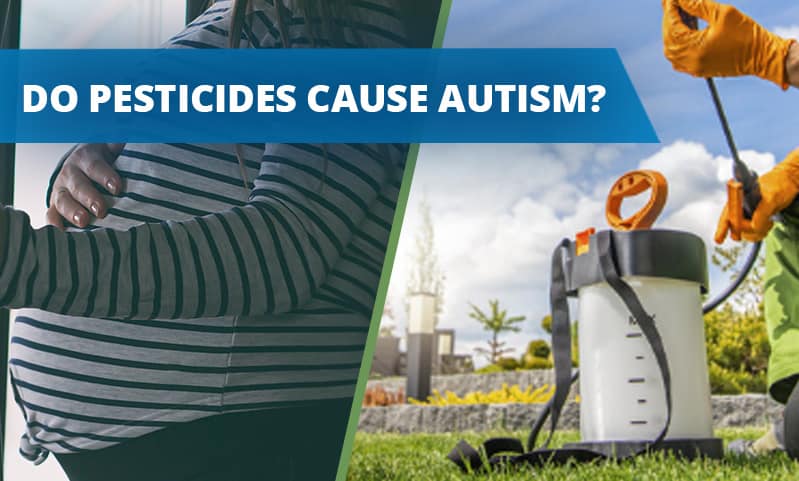A new study indicates that common chemicals in common household pesticides, like Ortho and Raid, could cause a wide range of neurodevelopmental disorders.
Neurodevelopmental disorders, such as autism and attention deficit hyperactivity disorder (ADHD), affect about 17 percent of children in the U.S. They are often incurable, and treatments are few, or sometimes very hit or miss. In addition, it has been hard to isolate what causes the conditions, researchers said.
“A significant portion of risk for neurodevelopmental disorders (NDD) is environmental, yet very few environmental causes have been identified,” the researchers wrote. “Ambient exposure to pyrethroid pesticides during pregnancy has been implicated as a potential risk factor for NDD in the unborn child.”
“In summary, mice developmentally exposed to a low dose of deltamethrin show a behavioral phenotype relevant to autism, ADHD, intellectual disability, and NDD in general,” the researchers concluded. “A reconsideration of the EPA’s benchmark dose for deltamethrin, used for regulatory guidance for all pyrethroid pesticides, is warranted.”
Autism Coping Strategies
Brain disorders like autism are permanent. However, the symptoms are usually treatable.
No one is sure why pyrethroid pesticides cause autism, just like no one is sure what causes this neurodevelopmental disease.
Early intervention doesn’t guarantee a successful outcome, but delayed intervention guarantees an unsuccessful outcome. Some coping strategies include:
- Medication: A variety of drugs, such as SSRI (selective serotonin reuptake inhibitor) antidepressants, treat autism symptoms. These powerful drugs have powerful side-effects, so parents should tread cautiously.
- Therapy: Autistic children often have trouble communicating and interacting in social situations. Communication therapy helps children learn skills in this area and overcome facial tics or other communication impediments. Social situation therapy often helps as well.
- Support: Both autistic children and their caregivers need support; caring for an autistic child can be draining. Support helps caregivers get through difficult periods.
The stakes are high. The lifelong costs of autism, mostly including medical bills and lost wages, could exceed $3 million.
Where Does the Money Come From?
A negligent failure to warn may be the most common alternative. Companies have a duty to warn customers about known product side-effects. If they breach this duty (fail to publish adequate warnings), the company is legally responsible for resulting damages. These damages include economic losses, like the ones mentioned above, and noneconomic losses, such as pain and suffering.
To establish the standard of care, a phrase which basically includes duty and breach, many attorneys partner with experts who work in this area.
A straight-up defective product action could also be an option. Companies are strictly liable for any injuries their defective products cause. The issue could be a:
- Design Defect: Pesticide manufacturers are much like opioid manufacturers. They compete with each other to release the strongest possible product. Powerful chemicals can have powerful side-effects.
- Manufacturing Defect: Many pesticides and other products look fine on the drawing board, but errors during the manufacturing and/or shipping process can create health and safety risks.
Although the standard of proof is low, cause, or a link between the breach and the damages, is often hard to establish in product liability cases.
Other legal theories like public nuisance, may be available as well. The public nuisance rule applies if a product injures a great number of people at about the same time.
Autism and other victims need and deserve substantial compensation for their serious injuries. For a free consultation with an experienced attorney, contact Napoli Shkolnik. We are happy to provide a free, no-obligation evaluation to review your legal options.
